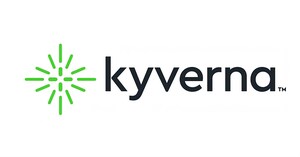Promising results from early clinical experience with anti-CD19 CAR T cells in patients with autoimmune diseases
Optimal CAR construct design contributing to an acceptable safety profile, and potential for lasting immune reset are key for treatment adoption
Kyverna is currently recruiting for multiple KYSA trials where the company's product candidate KYV-101 is used to treat patients suffering from myasthenia gravis, multiple sclerosis, and lupus nephritis
EMERYVILLE, Calif., June 10, 2024 /PRNewswire/ -- Kyverna Therapeutics, Inc. (Kyverna), a patient-centered, clinical-stage biopharmaceutical company focused on developing cell therapies for patients suffering from autoimmune diseases, announced today the publication in Nature Reviews Immunology of a manuscript co-authored with the National Institutes of Health titled "Chimeric antigen receptor T cell therapy for autoimmune disease"1.
With more than 30 ongoing sponsored clinical trials and a growing number of published clinical evidence suggesting the potential of CAR T-cell therapy approaches for autoimmune diseases, the manuscript highlights key considerations on optimal target cell population, CAR construct design, acceptable toxicities, and potential for lasting immune reset.
"It is quite exciting to see how the learnings from the development of innovative CAR T-cell approaches for the treatment of cancer patients are now being applied to the treatment of patients with autoimmune diseases," said James Kochenderfer, M.D., senior investigator, clinician, and translational researcher in the Surgery Branch of the National Cancer Institute, National Health Institutes of Health in Bethesda, MD. "I look forward to seeing further progress in this emerging field ultimately leading towards a potential breakthrough in patient treatment."
"We are very proud of our scientific collaboration with widely recognized opinion leaders in CAR T-cell therapy," said Peter Maag, Ph.D., chief executive officer of Kyverna. "By rapidly advancing an evidence-based science we may bring potentially long-lasting, treatment-free therapeutic options to many patients in need."
About KYV-101
KYV-101 is an autologous, fully human CD19 CAR T-cell product candidate for use in B cell-driven autoimmune diseases. The CAR in KYV-101 was designed by the National Institutes of Health (NIH) to improve tolerability and tested in a 20-patient Phase 1 trial in oncology. Results were published by the NIH in Nature Medicine2.
KYV-101 is currently being evaluated in sponsored, open-label, Phase 1/2 and Phase 2 trials of KYV-101 in the United States and Germany across two broad areas of autoimmune disease: rheumatology and neurology.
With 50 patients treated so far with the CAR in KYV-101 in both oncological and autoimmune conditions at more than 15 locations in Europe and the U.S., we believe that the differentiated properties of KYV-101 are critical for the potential success of CAR T cells as autoimmune disease therapies.
KYV-101 is also being evaluated in investigator-initiated trials for multiple indications in multiple geographies.
About Kyverna Therapeutics
Kyverna Therapeutics, Inc. (Nasdaq: KYTX) is a patient-centered, clinical-stage biopharmaceutical company focused on developing cell therapies for patients suffering from autoimmune diseases.
Our lead CAR T-cell therapy candidate, KYV-101 is advancing through clinical development with sponsored clinical trials across two broad areas of autoimmune disease: rheumatology and neurology, including Phase 2 trials for multiple sclerosis and myasthenia gravis, a Phase 1/2 trial for systemic sclerosis, and two ongoing multi-center, open-label Phase 1/2 trials in the United States and Germany for patients with lupus nephritis.
Kyverna's pipeline includes next-generation CAR T-cell therapies in both autologous and allogeneic formats with properties intended to be well suited for use in B cell-driven autoimmune diseases.
Forward-Looking Statements
Statements in this press release about future expectations, plans and prospects, as well as any other statements regarding matters that are not historical facts, may constitute "forward-looking statements." The words, without limitation, "anticipate," "believe," "continue," "could," "estimate," "expect," "intend," "may," "plan," "potential," "predict," "project," "should," "target," "will," "would" and similar expressions are intended to identify forward-looking statements, although not all forward-looking statements contain these or similar identifying words. Forward-looking statements in this press release include, without limitation, those related to: the potential for CAR T-cell therapy to provide lasting immune reset and to potentially bring long-lasting, treatment free therapeutic options to many patients in need; Kyverna's goals to develop certain paradigm-shifting treatment options; Kyverna's beliefs about the differentiated safety profile and other properties of KYV-101; and Kyverna's clinical trials. Actual results may differ materially from those indicated by such forward-looking statements as a result of various important factors, including: uncertainties related to market conditions, and other factors discussed in the "Risk Factors" section of Kyverna's most recent Annual Report on Form 10-K and Quarterly Reports on Form 10-Q that Kyverna has filed or may subsequently file with the U.S. Securities and Exchange Commission. Any forward-looking statements contained in this press release are based on the current expectations of Kyverna's management team and speak only as of the date hereof, and Kyverna specifically disclaims any obligation to update any forward-looking statement, whether as a result of new information, future events or otherwise.
For more information, please visit https://kyvernatx.com.
Kyverna Media Contact:
Consort Partners for Kyverna
[email protected]
1. Chung et al., Nat. Rev. Immunol. (2024). https://doi.org/10.1038/s41577-024-01035-3
2. Brudno et al., Nat. Med. (2020); 26:270-280.
SOURCE Kyverna Therapeutics

WANT YOUR COMPANY'S NEWS FEATURED ON PRNEWSWIRE.COM?
Newsrooms &
Influencers
Digital Media
Outlets
Journalists
Opted In





Share this article